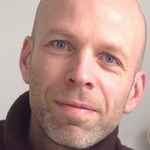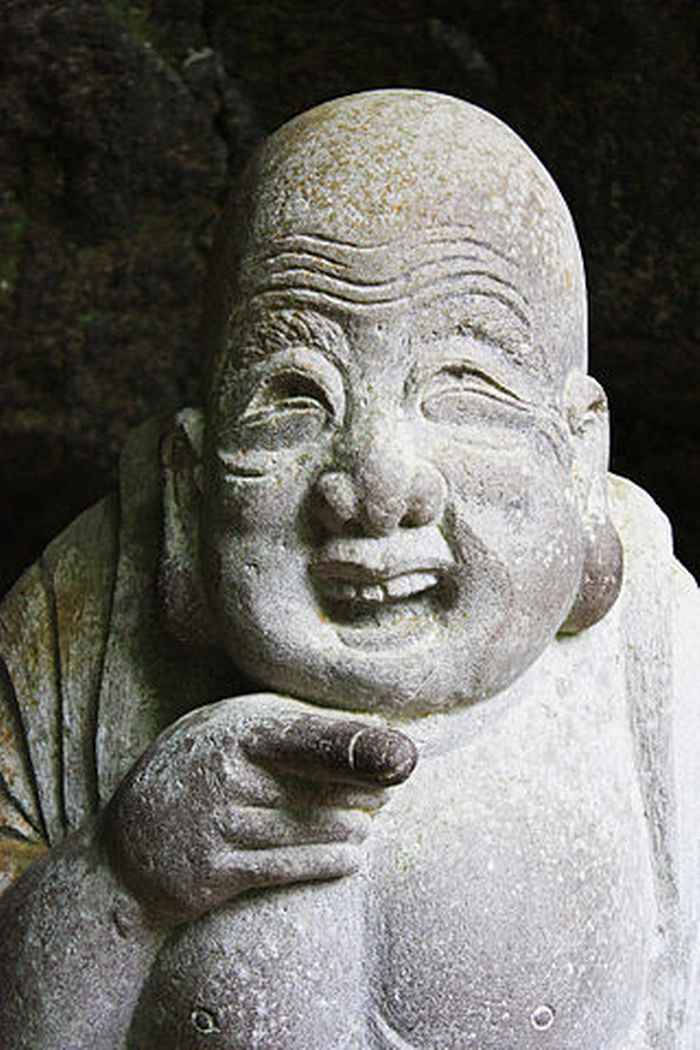Highlighted: IIS elective 'The Eternal Pursuit of Happiness'
10 June 2022

Ties van de Werff, an interdisciplinary scientist with a background in Science and Technology Studies, practical philosophy and the arts, was previously involved in the course as a guest lecturer and will be the main lecturer in the coming academic year. In this article, the lecturers and two students talk about the setup of the course, their personal search for happiness, the influence of digital media and corona on happiness, and the role of happiness in the bigger picture.
Students in search of 'happiness'
For over two thousand years, people have been asking what 'the good life' looks like. Everyone has, consciously or unconsciously, certain ideas about what 'happiness' is, and lives by these implicit assumptions. By becoming aware that these assumptions are subjective, students during the course start thinking about what happiness means to them exactly.
Van der Linden explains: "Thinking about what you find important in life influences how you organise your life and, therefore, influences your well-being. The great thing about being a student is that, on the one hand, you are not tied to your parental environment anymore and, on the other, you are not yet locked into a structure of work, children, mortgage or other responsibilities. This gives you more room for experimentation. That's very valuable for the rest of your life. 'Happiness' is an interesting concept to test all kinds of life experiments against.
The elective The Eternal Pursuit of Happiness offers some valuable tools to do so. The course starts with a historical approach: students learn how the Western concept of 'happiness' developed. Van der Linden says: "Important values of this Western concept of happiness include individual self-fulfilment as the highest goal, a life focused on constantly rising status, convenience and consumption, and work as the most important means of self-fulfilment in competition with others."
Van de Werff adds: "During the lectures, we talk about contemporary ideals of happiness. How do social media influence those ideals? And how is that different from the time of the Ancient Greeks? Throughout the centuries, there have been all sorts of different concepts and theories about truth and happiness. Especially now, where technology and digital well-being are central, happiness is a paradox. On social media, we often get the idea that everyone is jumping around happily at sunset on a beach in Thailand, while in reality, many people are struggling with burnout or mental issues. Students often experience constant pressure to perform, are insecure about their appearance and are looking for their place in society and their social circle. Ironically, while I was teaching this course last year, I got burnt out and had to recover for a few months."

By discussing the historical relativity and alternatives to the concept of happiness, students are given opportunities to find out how they can build a meaningful and valuable life. The more alternatives you know of, the more opportunities you have for experimentation.Max van der Linden, cognitive neuroscientist and science sociologist
Personal experiment
In addition to the interactive lectures by Van de Werff and various guest lecturers, students will carry out a personal experiment to put happiness into practice. Van de Werff describes: "We ask students to change something in their lives based on the ideas and theories discussed in the course and to document this. Think of: sleeping more, spending less time on your phone, meeting up with friends more or learning something new. Does that change affect your experience of happiness? What other results does it have? Just recognising your standard of happiness and becoming aware of it is worth a lot: you see that you are pursuing something that you may not actually want at all."

Radically interdisciplinary and eclectic
Although personal development plays a major role in the module, it is not a self-help course, but a combination of learning and experimentation. It is a radically interdisciplinary course - after all, studying happiness is not exclusive to philosophers or positive psychologists.
Van de Werff says: "Students sometimes find it difficult to think across disciplinary boundaries, but you cannot approach major societal problems from one single perspective. Happiness can not only be studied from the perspective of psychology but from all kinds of other disciplines. There are students from various Bachelor's programmes in the group, so everyone has different approaches and ideas. Science students, for instance, often take a quantitative view: how do you measure happiness, and what is it exactly? Each discipline has a different methodology, which is why we are also working on the philosophy of science: what knowledge do we gain from each discipline? We discuss how different disciplines, such as philosophy, psychology, sociology and the arts, look at happiness. One field of study is not better than another, yet some are taken more seriously than others, why is that?"
Each week, participants in the course answer questions on the literature. In addition, they delve deeper into one of the topics discussed in the form of a literature study. Mini, a Bachelor's student in English Language and Culture who took the elective last year, says: "The Eternal Pursuit of Happiness is different from other courses because you are given a lot of freedom, in the fullest sense of the word, to sink your teeth into whatever little morsel of information struck your fancy during the course and to run wild with it and see where the journey takes you. For the first time, I felt free to explore what interested me and I was encouraged to write an essay that was purely 100% my own concoction of ideas."
Student assistant Jonas talks about his biggest takeaway of the course: "As a psychologist, I usually focus on the role of the individual in the things we study. But to understand the pursuit of happiness more fully, the historical, cultural and social context cannot be left out. This was especially insightful for me when learning about the idea of achieving happiness through one's work - a historically relative recent development that is becoming increasingly more difficult to achieve."
Connecting east and west, past and present
The course material does not only include scientific publications, but also Voltaire's philosophical novel Candide and contemporary articles, for example by psychologists who have conducted neuroscientific research into the role of meditation on the brain. In addition, vlogs, podcasts and blogs are reviewed. Trudy Dehue's work on the duty of happiness is also discussed.

Nowadays, we expect ourselves to be happy, which causes pressure. Discussing topics like resilience, unhappiness, misfortune and fate is also important to happiness.Ties van de Werff, lecturer 'The Eternal Pursuit of Happiness'
Van der Linden says: "The more you strive for happiness, the harder it is to achieve it. You can never be happy all the time. But with this insight in mind, you can focus on things that you have more control over, and that certainly influences your happiness: the values that determine your actions."

In the past twenty years, the practice of mindfulness has taken off in the West. Meditating has become a way for many in our Western society to get a grip on their personal development, mental health and happiness. Van de Werff elaborates: "In our neo-liberal society, the assumption is that everyone is in a position to feel happy. If you don't, it's all on you. We see mindfulness as an 'inheritance' from Buddhism, while in other parts of the world our version of mindfulness is not seen as such. How is this viewed in the East? How is happiness represented in Buddhism? Together we will explore the differences and similarities between the views on happiness in the East and West."
Mini: "The teachers enabled me to make connections between topics I had never dealt with before. For example, I learned that Satanism and Buddhism share many core tenets - and that both contribute to human happiness in strikingly similar ways. One of the course materials that I strongly believe everyone should read at least once in their lives is Letter to Menoeceus, by the Greek philosopher Epicurus. That text really moved me."
Happiness in 'the bigger picture'
Van der Linden says: "Many problems we currently experience on a global scale are interrelated. The Western concept of happiness has been an important determining factor in this. The climate crisis is a prime example, but various forms of inequality and health problems, such as obesity, can also be linked to how we have organised our society and the world. The Western economy largely runs on supplying products and offering services to make it as easy as possible for consumers to live 'the good life'. Businesses benefit because we do not see how other people and the planet suffer because of our idea of happiness. A different concept of happiness, which is based more on working, living and recreating locally within the boundaries of our planet, would make a significant difference. I believe that in a greener and more just world, we will also experience more happiness."
During the past academic year, because of the outbreak of the coronavirus, the course was taught partly on campus and partly online. For many students, studying from home and the lack of interaction and physical proximity had a huge negative impact on their sense of happiness. Van de Werff says: "We saw the students struggling. Especially in these times in which we live, with the pandemic, all kinds of rapid technological changes, climate crisis and war, it is important for your happiness that you learn to deal with ambiguity, change and uncertainty. In this course, students are taught how to be resilient. Meanwhile, students also gained valuable Zoom skills, and because the lectures were recorded on video, they became accessible to people with disabilities and students with lower energy levels. Because we met online, we were able to reach a more diverse group of students."
Sometimes in academia, we lose sight of what we are doing and why, when all that we do is so rigidly structured and scripted for us to follow. Taking this course alongside my regular curriculum was like having a planned interruption to all of that - like a lovely, refreshingly unrestrained walk through some metaphorical fresh air, where you have the time and space to just exist and think as deeply as you want to about things that interest you.Mini, Bachelor's student in English Language and Culture
More information
Do you want to expand your understanding of happiness, realise what happiness could mean to you and learn to see where happiness is in your life? The course The Eternal Pursuit of Happiness is open to second-year and third-year UvA Bachelor's students and Master's students, students from other Dutch universities and other interested parties who can apply as contract students. Registration is possible until one week prior to the start of the course in September 2022. More information about registration can be found on the website of the Institute for Interdisciplinary Studies of the UvA.